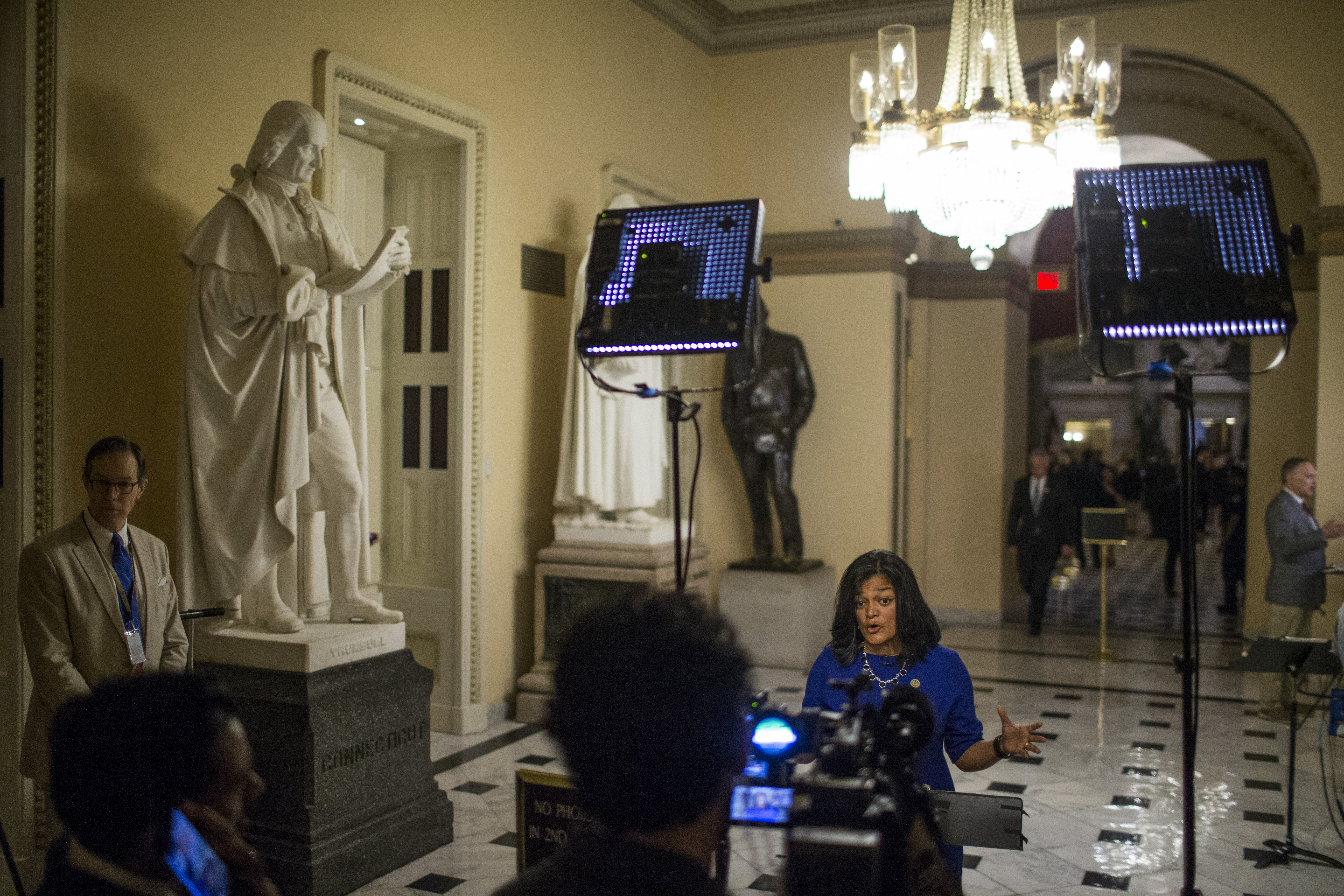On Tuesday, the United States Court of Appeals for the Federal Circuit ruled in favor of 73-year-old Navy veteran Alfred Procopio Jr., declaring that Procopio and the estimated 90,000 “Blue Water” Navy veterans of the Vietnam War qualified for aid, which previously had been denied by the Department of Veterans Affairs (VA), on account of “presumptive exposure” to Agent Orange. The decision in Procopio v. Wilkie reversed a 2008 ruling in favor of the VA’s policy of only extending aid to members of the U.S. military who served on the ground or inland waterways in Vietnam during the war—and not to the tens of thousands of sailors, like Procopio, who served aboard ships stationed in Vietnam’s territorial waters off the coast.
Procopio first filed a claim for aid with the VA a decade ago, arguing that his prostate cancer and diabetes were connected to exposure to Agent Orange while he served aboard the USS Intrepid, an aircraft carrier stationed off the coast of Vietnam. In a subsequent court case after his claim was denied, Procopio, U.S. Navy veterans, and many veteran service organizations argued that those stationed in the territorial waters of Vietnam, where many U.S. Navy ships patrolled, should be included in the VA definition of having served “in the Republic of Vietnam.”
The U.S. military used at least 11 million gallons of Agent Orange—a herbicide the United Nations calls “one of the most toxic compounds known to humans”—in Vietnam from 1961 to 1972, deforesting almost 12,000 square miles of jungle. The VA reports that over 2.6 million U.S. military personnel were exposed to the herbicide, which has long been linked to a list of severe diseases, including various forms of cancer, diabetes, and Parkinson’s disease.
In 1977, a veteran made the the first-ever VA claim referencing exposure to Agent Orange. By 1993 only 486 of the 39,419 veterans who filed claims had received compensation for Agent Orange-related disabilities. According to a 2015 ProPublica report, the VA did not keep records of Agent Orange-related claims until 2002, but, from 2002 to 2015, more than 650,000 veterans were granted benefits related to exposure to the herbicide.
Secretary of the VA Robert Wilkie, and other opponents of the Court of Appeals ruling, contend that there is insufficient evidence connecting Navy veterans who never stepped foot on Vietnamese soil to Agent Orange exposure. In the past, Wilkie has cited the cost of extending care to 50,000 to 70,000 veterans as a reason why the VA denied Blue Water Navy veterans claims of presumptive exposure to Agent Orange.
Veterans groups lauded the decision. “It’s been 16 years of hardship for these veterans who served our country honorably,” Vietnam Veterans of America President John Rowan said in a statement provided to Pacific Standard. “Many are sick and many have died of what should have been service-connected conditions. Those who remain will now be eligible to receive treatment and benefits from the Department of Veterans Affairs.” Rowan’s statement also encouraged Blue Water Navy veterans to submit a claim to the VA immediately.

(Photo: Zach Gibson/Getty Images)
If the VA wants to appeal the decision, they have 90 days to take the case to the U.S. Supreme Court. However, the Supreme Court is already considering another Blue Water Navy case, Gray v. Wilkie, which concerns the same principle. The VA is required by law to follow the appeals court decision unless a stay is granted.
As a result of the ruling, Blue Water Navy veterans can now walk into any VA hospital or office and file a claim connecting certain health problems to Agent Orange exposure, but it will take some time for those claims to be processed. A VA staffer who handles service-connected disability tells Pacific Standard that his office has not yet received formal guidance on how this court ruling will affect the VA claims process, and suggested that there will be a delay between the ruling and changes to how claims are processed. The VA website page on Blue Water Navy veterans and Agent Orange exposure has not been changed as of press time, and still says that, in order to make a claim, Blue Water Navy veterans must prove that they served onboard a ship the VA has already approved for possible Agent Orange exposure, and must provide evidence that shows they were exposed to herbicides while serving.
Although they have been granted legal remedy, many veterans hope to codify their victory legislatively. In support of their cause, House Democrats introduced a bill earlier this month that would extend VA benefits to Blue Water veterans. Previous efforts to legislate have enjoyed bipartisan support in both the House of Representatives and Senate, but pushback from the VA itself has stalled legislative efforts: Last year a bill extending disability benefits to Blue Water veterans passed in the House, by a vote of 382–0, but did not come to a vote in the Senate following vocal opposition from Wilkie.





